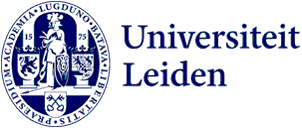
‘Meeting new people is still very valuable’
Particularly during this time of social distancing and remote learning, it is important to carry on meeting new people – even if you don’t always feel like it after another day staring at your screen, says Wessel van Dam. In his role as assessor at the Honours Academy, Wessel represents the interests of students: “Sometimes they are unaware that they can come to me for help.”
It’s the summer of 2020. Coronavirus has spread to every corner of the world, and astronomy student Wessel van Dam sees his plans for the next academic year falling apart: no semester abroad. Determined to make the best of things, he applies for a vacancy: student member of the Honours Academy board.
Since getting the job, he has been the point of contact for high school and university students who are enrolled in additional education at the Honours Academy. What inspires Wessel to do this work, and what problems is he encountering? He tells us all about it, in a video interview.
What made you want to become an assessor?
“The vacancy was very similar to a position I held in my student association last year, where I was responsible for communication with members of the association. Plus, I was already working as an ambassador for the Science & Life Science track at the Honours College – I think it’s terrific that extracurricular activities like these are on offer.”

How did you experience the Honours College?
“Many of my interests were not covered in my regular courses. The Honours College gave me the freedom to put together my own programme. I followed a Bachelor Honours Class in fictional writing, for example. I’d previously started writing a book... I didn’t go very well, but I enjoyed it,” says Wessel laughing.
As an assessor, you have a say in running the Honours Academy. What does that entail?
“We decide what direction we want to take the Honours Academy in. For example, we try to make improvements to the programmes and make sure they are as accessible as possible. We also handle the day-to-day business of the academy together with the rest of the team, and make sure everything is running smoothly. People look to me when it comes to making improvements to honours education – how do the students see things? How are they being affected?”
What’s it like having to represent so many students?
“I’ve completed an Honours College track myself, so I already know a bit about how things work. But sometimes it’s difficult to predict how a particular change could affect students. That’s when I go looking for feedback. The programmes have advisory committees for students to provide feedback. That’s very valuable: students can tell their side of the story.”
What would you like to improve about your job?
“What I miss the most is speaking to students face to face. I’d like to find a way to get input from them in a more direct way. There are so many students who might have something to say, but who are put off from contributing because they can’t speak to me directly – or who perhaps don’t even know that they can contact me.”
“But I have to note that this issue is mainly a result of the pandemic. Normally I’d be able to speak to students after lectures and ask them how they’re doing. That’s much more difficult online. The most difficult thing is helping those who need it most, because they are socially isolated.”

What would you like to say to those people?
“Go ahead and sign up for the online activities, even if you don't feel like it after a day of online lectures. During this crisis, we all have a tendency to stick to the people who we already know well, but contact with people you know less well can also be very valuable.”
“I noticed that when I was organising the Big Brain Academy this year: a game show based on the Dutch television quiz De Slimste Mens. The honours students competed against each other in teams of 4 or 5, so that they could get to know each other better. I got some very positive feedback on that.”
What else do you like about your job as assessor?
“It’s a great team to work with. We do a lot of social activities online. I also have a good amount of freedom to do things on my own initiative, which is something I really value. So for example, I always try to make our monthly activities e-mail as inviting as possible, and people have responded positively to that.
Speaking of your personal contribution – what is your motto in life?
“That’s a great question. I think I’ll go for ad astra per aspera: through hardships to the stars. It’s about when you have great plans, and there’s no easy way to achieve them, but you still manage it. That motto suits me because that's how I see my work... and of course, also because I’m an astronomy student.”
Original text: Michiel Knoester
Translation: Academic Language Center
Images: Rick van Gelder
E-mail the editors
